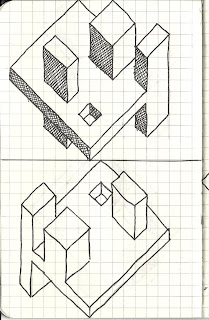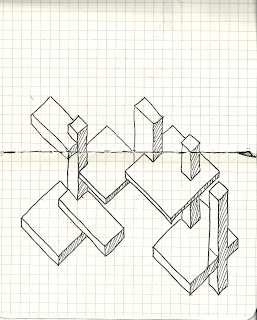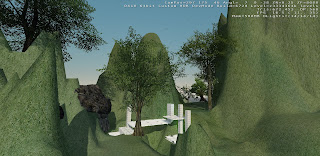Friday, May 21, 2010
Saturday, May 8, 2010
Mash Up
The dominant issue for the first 18 months became a triumph. Australia has come to the rescue, Ms. Merkel announced, grumbling, in 1989 when the Berlin Wall fell. But Europe's major powers have drastically become a worldwide atlantic alliance and, as a result, developed into a crusading campaign to take over a country.
News Articles
 ANGELA MERKEL
ANGELA MERKELAngela Merkel became the first female chancellor of Germany in 2005 at the age of 51. She was also the first eastern German to lead the country after its reunification following the fall of the Berlin Wall. She is the leader of the Christian Democratic Union, a Catholic-leaning conservative party.
Mrs. Merkel was re-elected in September 2009, making her one of the longest-serving leaders among Europe's major powers. But her party had its worst results in 60 years, reflecting widespread unhappiness over the economic downturn, which has cost Germany its position as the world's leading exporter. She formed a coalition with the pro-business Free Democrats, which in theory gave her a the chance to enact the kind of liberalizing economic plans she proposed when she first ran for chancellor in 2005. Rising budget deficits as a result of the economic crisis, however, have drastically limited the kind of tax cuts on which the would-be coalition partners campaigned.
The dominant issue in the first six months of Mrs. Merkel's second term turned out to be the debt crisis in Greece, and the threat it posed to the Euro. Germans were overwhelmingly opposed to a bailout of a country they saw as spendthrift, and Mrs. Merkel took a tough line in months of negotiations with France and the International Monetary Fund over an aid package. Finally in late April 2010, as the crisis threatened to spread to Spain and Portugal, Ms. Merkel's hand was forced, as political calculations had to take a back seat to the more basic task of ensuring the stability of the euro currency that replaced Germany's beloved mark.
Ms. Merkel announced, grumbling, that Germany would do its part to defend the euro.
Born in Hamburg on July 17, 1954, to a Protestant minister, Horst Kasner, and his wife, Herlind, Angela Dorothea Kasner was three months old when her father was asked to take over a country church in Brandenburg. She excelled in school and hoped to become a teacher and translator. But because of her father's pastoral work, she found those careers closed to her. So in 1973, she opted to study physics at Leipzig University.
Mrs. Merkel was settling into a career at the Academy of Sciences in East Berlin in 1989 when the Berlin Wall fell. A month later, she joined a coalition of pro-democracy parties.
When she first took office as Germany's chancellor, Mrs. Merkel seemed less a phenomenon than a fluke -- squeaking into office amid predictions that her government would be hobbled by internal problems and might soon collapse. But she later emerged as a leading political actor in Europe, and, having forged a surprisingly warm relationship with President George W. Bush, the go-to person in Europe for Washington. Reinvigorating the Atlantic alliance was at the top of her agenda.
Mrs. Merkel has professed to want to work closely with American President Barack Obama. But in the spring of 2009, her government became the most vocal of a group of Europe's better-off nations who were resisting calls for large-scale spending or deep interest rate cuts to help buoy not only their own economies, but those of their weaker neighbors to the east and south.
Her reelection freed her from a coalition with the more left-leaning Social Democrats, who had blocked many of her more ambtious ideas for economic restructuring. But the new alliance did not mean smooth sailing: In what should have been a simple formality, Mrs. Merkel's official re-election as chancellor was dampened on Oct. 28, 2009 by the fact that at least nine members of her coalition withheld their votes in the secret parliamentary ballot.
Ms. Merkel sought to rebuild her standing by resisting demands by French President Nicolas Sarkozy and others for swift action in early 2010 to bolster Greece's standing with the credit markets. Ultimately, she forced Mr. Sarkozy, to his fury, to agree that the International Monetary Fund would play a role in creating an aid package -- a step seen as a blow to hopes for a European Union that would be self-sufficient in good times and bad.
With deep resistence to a bailout among German voters, and a critical by-election coming in May, Mrs. Merkel seemed to be playing for time on Greece, stalling on assistance until after the vote. In the process, she carved out a new role for Germany on the European stage: as a nation that overtly pursues its own interest as aggressively as any other.
April 29, 2010, The New York Times.
MIRANDA KERR
SUPERMODEL Miranda Kerr has come to the rescue of the Macquarie Bank broker whose job is under threat after he was caught on TV checking out steamy shots of her on his work computer.
Kerr has offered to sign a petition to help red-faced broker David Kiely save his job.
"I am told there is a petition to save his job and of course I would sign it," said Kerr, who is in Australia.
Mr Kiely, who until Tuesday was an anonymous suit, has become a worldwide sensation after footage of him getting caught on TV ogling Kerr's curves became a YouTube hit.
He was opening emailed pictures of Kerr while behind him a colleague, Martin Lakos, did a live television cross to Channel 7 news.
The international model said she hoped his employer would not come down hard on Mr Kiely.
Banking news website hereisthecity.com yesterday started a campaign urging colleagues to email Macquarie Bank and save Mr Kiely's job.
Supermodel Miranda Kerr speaks out in support of embarrassed bank broker David Kiely By Fiona Byrne
From: Herald Sun February 05, 2010
HELEN KELLER
Triumph Out of Tragedy
By ALDEN WHITMAN

For the first 18 months of her life Helen Keller was a normal infant who cooed and cried, learned to recognize the voices of her father and mother and took joy in looking at their faces and at objects about her home. "Then," as she recalled later, "came the illness which closed my eyes and ears and plunged me into the unconsciousness of a newborn baby."
The illness, perhaps scarlet fever, vanished as quickly as it struck, but it erased not only the child's vision and hearing but also, as a result, her powers of articulate speech.
Her life thereafter, as a girl and as a woman, became a triumph over crushing adversity and shattering affliction. In time, Miss Keller learned to circumvent her blindness, deafness and muteness; she could "see" and "hear" with exceptional acuity; she even learned to talk passably and to dance in time to a fox trot or a waltz. Her remarkable mind unfolded, and she was in and of the world, a full and happy participant in life.
What set Miss Keller apart was that no similarly afflicted person before had done more than acquire the simplest skills.
But she was graduated from Radcliffe; she became an artful and subtle writer; she led a vigorous life; she developed into a crusading humanitarian who espoused Socialism; and she energized movements that revolutionized help for the blind and the deaf.
June 1 1968, The New York Times
Wednesday, May 5, 2010
Sunday, May 2, 2010
Final Crysis Model
I used red lights on Hawkings side to relate it to "reach out to the stars".
This is taken from Hawkings side also, view through the rocks could give Hawking ideas about the world and where we are going. The rocks and strange landforms relate to space travel and the unknown.
This image shows the harshness of the environment I have put my model into, that is steep cliffs, high altitudes and big falls. The harsh environment relates to the human race not being able to survive.
The Black Box
I chose this image from 'The Black box' as I am creating my Crysis and axonometric shapes to blend in and be a part of the environment around it. I believe that from this image the viewer gets the idea that this object or space depicted in the image above molds into and becomes part of the space surrounding it.
Electroliquid Aggregation
STEPHEN HAWKING
I don't think the human race will survive the next thousand years, unless we spread into space. There are too many accidents that can befall life on a single planet. But I'm an optimist. We will reach out to the stars.
I don't think the human race will survive the next thousand years, unless we spread into space. There are too many accidents that can befall life on a single planet. But I'm an optimist. We will reach out to the stars.
"Colonies in space may be only hope, says Hawking" by Roger Highfield in Daily Telegraph (16 October 2001)
CHARLES DARWIN
In the struggle for survival, the fittest win out at the expense of their rivals because they succeed in adapting themselves best to their environment.
In the struggle for survival, the fittest win out at the expense of their rivals because they succeed in adapting themselves best to their environment.
As quoted in The Living Clocks (1971) by Ritchie R. Ward
Sydney Morning Herald, August 20 2008, Deborah Smith
In the struggle for survival, we will reach out to the stars. The human race will survive, because they succeed in adapting themselves best to their environment.
NICOLE KUEPPER
"I love working with passionate people who want to help address climate change and poverty by thinking and experimenting outside the square,"Sydney Morning Herald, August 20 2008, Deborah Smith
In the struggle for survival, we will reach out to the stars. The human race will survive, because they succeed in adapting themselves best to their environment.
Subscribe to:
Comments (Atom)
































